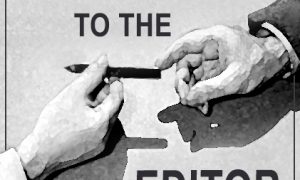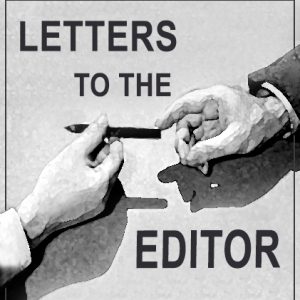To the Editor,
In response to the article published in The Westfield News on Friday 8/14:
WG&E failed to vote on the $1 million city aid package citing concerns the mayor’s request lacked a detailed plan of spending the funds. Commissioner Sacco went further, saying the mayor’s initial request was “woefully inadequate” and WG&E has a fiduciary responsibility to rate payers not taxpayers. While WG&E’s differentiation of rate payers and taxpayers is technically correct, they still fail to grasp, or willingly ignore, there is significant overlap of the two groups.
Technically or not, city taxpayers represent a large portion of WG&E customers (rate payers) and are suffering financially. Many will not be able to afford rent or mortgages in the coming months, nevermind significant property tax increases on the horizon to balance the budget. Commissioner Sacco’s comment is a slap in the face to the citizens of Westfield and the city’s leadership. Let us not forget, as a paragon of adequacy, WG&E leadership not only failed to vote on the aid on successive agendas TWICE, but failed to reach out to city hall leadership during the last TWO MONTHS requesting clarification on Mayor Humason’s request. Instead, the commissioner and light board chose to publicly embarrass the new mayor (and his team) questioning his priorities in a budget decimated by COVID 19– an unprecedented event affecting virtually all states and municipalities nationwide. Further reinforcing the need for aid is the current impasse at the federal level. To date, there is no appetite for a state and municipal aid package and waiting in hope for one is reckless. The city is trying to be proactive and react to the current political climate and asking one of its largest corporate citizens to aid in stabilizing the city’s finances. The alternative is bleak and includes raising property taxes on residents and businesses, and/or cutting services; which at this point means police, fire, and school personnel. There are no other options and WG&E should realize withholding aid isn’t good for them long term. In fact, they might consider it a prudent investment paying goodwill dividends in the future.
While some Light Board members are looking at discounting fees and services as an alternative, this effectively amortizes savings over twelve months, and may not be effective in shoring up the near-term budget crises. The request for $1 million should be granted because WG&E is a nonprofit and municipally owned, enjoys no local tax liabilities and as such, tied to the community it serves. The lump sum would give city leadership more financial flexibility in unprecedented times.
A plan for reduction in services in lieu of taxes, while positive, is more appropriate post COVID. Although, we only hope WG&E leadership shows the same motivation for municipal discounts post COVID as it does now. But, for now, WG&E should tap its $33 million surplus and stop insinuating it doesn’t have the means or obligation to help.
Best,
Steve Warsaw




